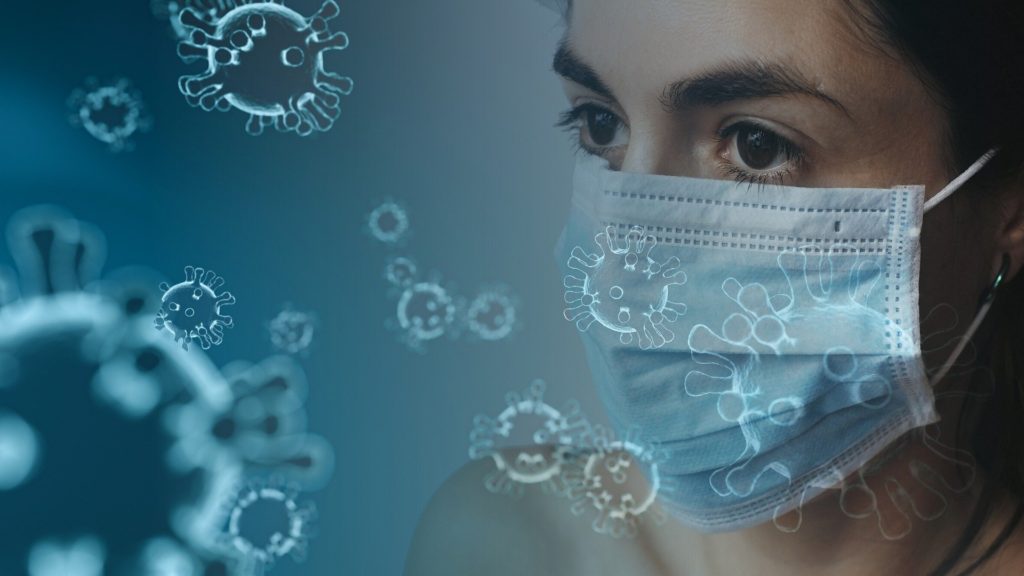Mankind changed when China reported the emergence of a novel corona virus (n-Cov) causing pneumonia in adults leading to a highly infectious and fatal illness called corona virus disease 2019 (COVID-19). No one quite knew that the pandemic would transform our lives to this extent. Globally, Europe and USA were affected the most during the first wave as far as the mortality is concerned. Countries like New Zealand remained almost unaffected because of their strategic geographical location, commendable preparedness, and stringent policy execution. The first wave did not affect India as much, but the second wave has more than compensated for the morbidity and mortality that was unseen in the first wave. It is not an exaggeration to say, at this juncture, that we are heading towards (or may be already into) another pandemic which is that of mental disorders.
People lost their jobs, some lost their houses, many lost their families and loved ones. With so much suffering around, mental health is severely impacted. We can get back our jobs, houses, economy, but what we cannot get back is our loved ones, our families. The grief is unsurmountable, incomprehensible, and inconceivable! Bereaving the loss and handling the grief has been a major mental health concern, more so in the pandemic as the deaths have been sudden, unexpected, and traumatic for most of us. It would be the best to talk about it, express it exactly how you feel it. Supressing it or shoving it within is not a good idea. Practising empty chair therapy is advised where the family is ridden with guilt and helplessness. Other ways to deal with grief are to help others in their battles against COVID and subliming the emotions in constructive positive activities.
Now that the virus is almost 18 months old, we have some literature on how the illness impacts the mental health of those afflicted with it. We can divide the repercussions on mental health as follows-
Effect of virus – We now clearly know that the virus directly invades the brain tissue by entering the nervous system through nasal cavity other than spreading through airways and blood route. It may cause encephalitis like syndrome which presents as seizures, delirium, and cranial nerve injury along with other usual symptoms of the illness. Other presentations such as meningitis, encephalopathy, stroke, Guillain Barre Syndrome, and toxic neuropathies have also been noted. The virus may additionally cause mood changes, cognitive changes (such as confusion, memory impairment, altered sensorium), sleep disturbances and anxiety.
Effect of isolation and quarantine – In milder cases, where people are following home quarantine and isolation, the illness has caused stress, panic, confusion, and agitation in the affected individuals. The physical fatigue along with the idea that illness can be fatal, has led many people into low mood, panic attacks and sleep disturbances. Mental fussiness and impaired judgements are also seen in some.
Effect of medicines – Steroids have been notorious to cause a lot of mental health issues in susceptible people. High doses for a prolonged time may precipitate depression, hypomania, mania, severe anxiety and even psychosis in some, especially who had a previous episode in the pre-COVID times. Indiscriminate use has also led to significant physical side effects. We cannot avoid steroids when it comes to saving lives, but a well titrated dose under the guidance of a COVID specialist can truly make a difference in the outcome. Some of the antivirals have also shown to affect mood, cognition, and sleep. Hydroxychloroquine use is associated with hallucinations, depression, memory impairments and even delirium in some.
Long COVID – It is a sequelae syndrome lasting for 8 to 12 weeks, may extend up to 6 months in individuals who have recovered from the acute infection. Seen in almost 10 percent of affected population, it presents as breathlessness, chronic fatigue, and mental fussiness. People report of not being able to think straight typically manifesting as brain fog.
We are very sure that COVID is going to stay for some more time, at least in the Indian subcontinent. Once this peak subdues, the infection is going to come in bursts every spring and autumn and affect the individuals who do not have the immunity by then. The biggest concern is that the virus is constantly evolving and mutating. Till the time it remains benign, the illness may pass as a seasonal flu but if and when the virus picks up virulence, it is going to cause formidable morbidity and mortality. Vaccination helps taming the infection and avoids a fulminant disease, though all precautions need to be followed even after an individual is vaccinated.
Wishing you the best of mental health today and always!
Dr Apala
PS: Here are some tips to stay mentally healthy during the lockdown.
Here is a list of 100 things to do while in quarantine at home.
Here is a list of heart-warming movies to watch during the isolation.


Nicely written n well elaborated
Well expressed and documented Doctor.
Your ‘to do list’ of 100 things in isolation is amazing. It makes sense to keep yourself busy and in good humour or else aloofness will stare you on your face… if you are not pursuing your passion ( or anything like that), you are struggling with your loneliness.
It’s really the perfect way to keep people free from stress and move away from this tough and challenging period of life. Only these are the ways I use to motivate my friends and family. So I love to share it with all my beloved.
Thank you mam for these nice ideas to make us comfortable in the lockdown and enjoy the stay at home which keeps us safe.
I also wish for your safety .
Please keep us motivated. 😇🙂
Thank you Dr. A great in depth article!
Very well analysed and useful one. 100 things to do is really commendable
Thank you everyone for your kind words 🙂